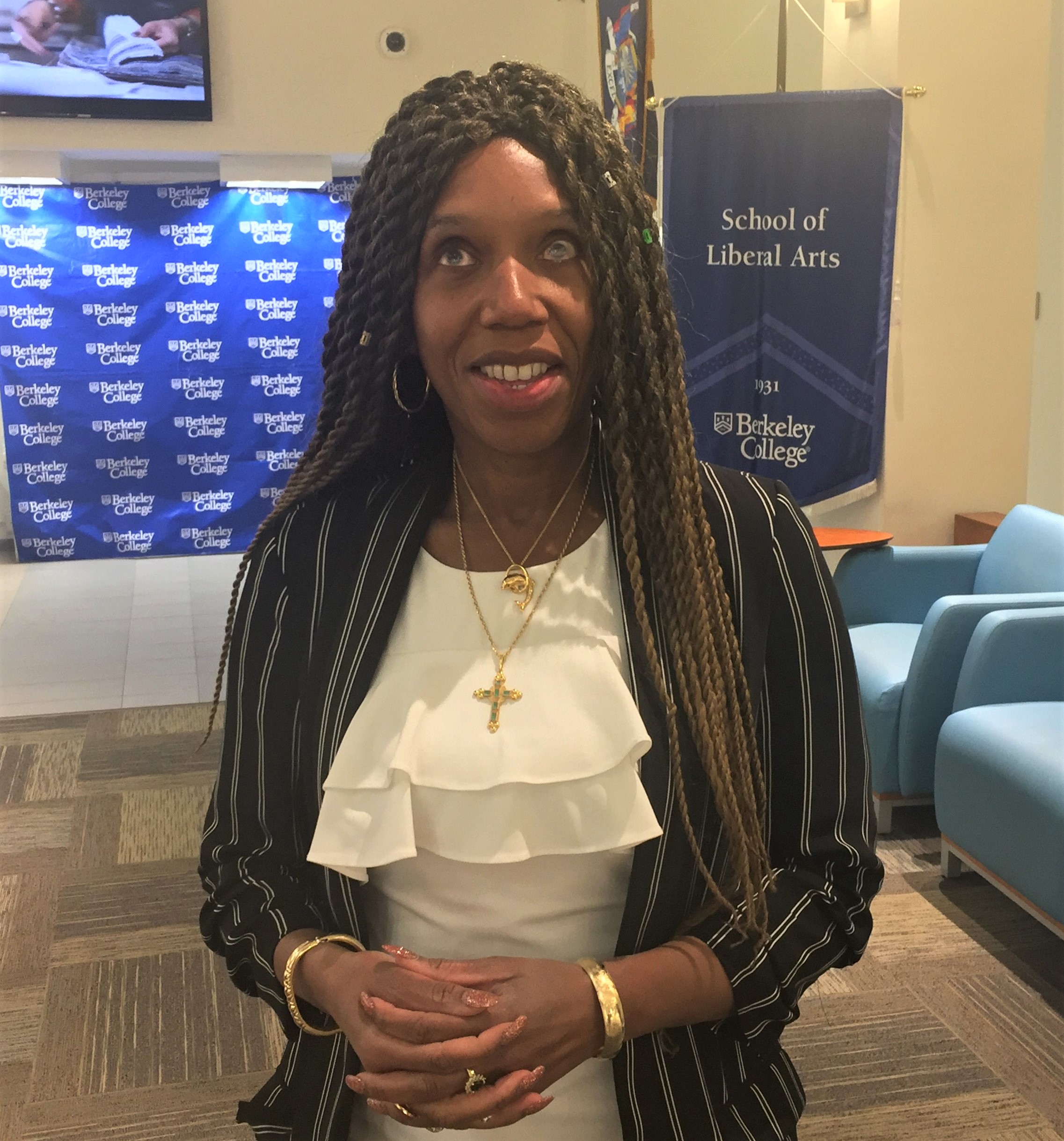How Accessible is Voting to People with Disabilities? Commentary on the 29th Anniversary of the Americans with Disabilities Act
 |
|
| FOR IMMEDIATE RELEASE FRIDAY, JULY 19, 2019 |
Contact: Kelly Depsee |
|
Commentary on the 29th Anniversary of the Americans with Disabilities Act |
|
|
Sharon McLennon-Wier, PhD, CRC, LMHC, wants people with disabilities to flex their voting muscles. Dr. McLennon-Wier, Director of Disability Services at Berkeley College, with campuses in New York, New Jersey, and Online, is part of Rev Up Westchester, a non-partisan coalition of people with disabilities and organizations, calling on government officials to increase polling place accessibility and voter registrations among people with disabilities. Click here to view a video on the importance of voting. Better Access Will Bring Citizens with Disabilities to the Voting Booth By: Sharon McLennon-Wier, PhD, CRC, LMHC One in five eligible voters has a disability. I am one of them. I remember casting my first vote in the 1992 presidential election. It was two years after the American with Disabilities Act (ADA) was signed into law by President George H.W. Bush on July 26, 1990. More than two years later on November 3, 1992, I had my first day at the voting polls. I was 21 years old. The experience was liberating, yet unsettling because I had to rely on my classmate at Syracuse University, Justin, to guide me through the voting process. This meant being in the voting booth with Justin reading me the candidates’ names on each row and having him take my hand to direct my fingers to each voting selection before pulling the lever. It was a nerve-wracking experience because I needed someone at my side to exercise my democratic right to vote. I had to trust in the accuracy of this process of another person guiding me to my voting selections. The last midterm elections saw the rising influence of voters with disabilities. A study by the Program for Disability Research at the Rutgers School of Management and Labor Relations reports that more than 14 million voters with disabilities turned out for the 2018 midterm elections – an 8.5 percent increase over the 2014 midterm elections. The greatest increase – 12.9 percent – was among voters with a visual impairment. Today I can vote in my town of Fishkill in Dutchess County, NY, using a Braille-coded voter card. Thanks to ADA, voters with disabilities have the right to assistive technologies to cast their votes. Title II of the ADA entitles people with disabilities to the full and equal opportunity to vote. It is our right. We can’t take the right to vote for granted. Being a citizen engaged in the voting process gives us a voice in how our nation and local communities are governed. Residents with disabilities can learn more about how to exercise their right to vote on Friday, July 26, 2019, from 10 a.m. to 2 p.m., when representatives of Berkeley College’s campus in White Plains, NY, and its Office of Disability Services join Rev Up Westchester and other organizations to conduct a voter registration drive as part of Westchester County Disability Awareness activities taking place at Playland Park, Rye, NY, throughout the day. Q&A with Sharon McLennon-Wier, PhD, CRC, LMHC
It means being able to go to graduate school and to attain gainful employment and to have the opportunity to achieve life goals. Life goals? Like buying a home, taking a vacation and affording the hobbies that bring me joy and satisfaction. Where would you be today without the Americans with Disabilities Act? It would have been a lot harder for me to achieve gainful employment because the ADA allows for assistive technology for people who are blind and visually impaired to enter into professions once dominated by the sighted world. For example, today, people with sight impairments can have careers in professions such as accounting, medical billing, psychology and law. Why is it important to vote? It is important to vote because as a citizen you get to exercise your civic duty and make changes within your environment in a very profound way. One of the reasons people with disabilities do not vote is because of their inability to access the polls independently. According to a Rutgers School of Management and Labor Relations report titled, “Disability and Voter Turnout in the 2018 Elections,” if people with disabilities voted at the same rate as existing voters without disabilities in similar circumstances, there would be 2.35 million more voters at the polls.” We need to get them registered. - end - To schedule an interview with Dr. McLennon-Wier, contact Ilene Greenfield, Director, Media Relations, at IGL@BerkeleyCollege.edu; or 973-278-5400, ext. 1-5122. |
|


